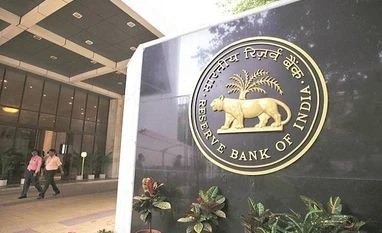The Reserve Bank of India's (RBI) revised regulatory framework for the housing finance companies (HFCs) will help them improve risk management and governance and thus become financially sound to withstand market turbulence, according to experts.
The RBI, which has taken over the regulation of HFCs about a year ago, has come up with a revised regulatory framework for the HFCs. Among other things, the RBI has fixed the minimum net-owned fund (NOF) for commencing housing finance business at Rs 20 crore and specified a timeline for meeting the NOF by the existing HFCs with lesser capital.
"The guidelines also make HFCs equal to NBFC (non-banking financial company) guidelines in terms of net-owned funds, exposure to individual and group companies, risk capital, liquidity etc," said Kuntal Sur, financial risk and regulation leader, PwC.
He added that these measures will make HFCs stronger in risk management, governance and financially sound. "RBI has also given a transition timeline and specific criterion for transition. With the adherence of these, HFCs will be in a better position to withstand market turbulence."
Commenting on another aspect of the revised regulation that HFCs will not be allowed to impose prepayment charges, ANAROCK Property Consultants Chairman Anuj Puri said it would provide relief to the borrowers.
"Usually, HFCs charge penalty anywhere between 1-4 per cent on the outstanding principle. But, this notification by the RBI will bring in some relief.
"However, the move may not be as good for HFCs for whom the foreclosure charges were an income line. There are many HFCs who continue to face a host of issues including a liquidity crisis," said Puri.
Meanwhile, CARE Ratings in a recent report said that overall, the regulations pertaining to HFCs have been harmonised with the extant NBFC regulations. The inclusive definition of housing loan and restrictions on financing of group companies are significant positives.
With the earlier reduction in risk weights, the capital requirements would be muted from capital adequacy perspective, it said.
Currently, the larger HFCs meet the guidelines and are unlikely to face significant challenges when HFC regulations are further harmonised with NBFCs going forward, the report added.
In the framework, it has also been provided that the HFCs will not impose foreclosure charges/pre-payment penalties on any floating rate term loan sanctioned for purposes other than business to individual borrowers, with or without co-obligants.
According to the RBI norms, HFCs lending against the collateral of listed shares shall maintain a loan-to-value (LTV) ratio of 50 per cent for loans granted against the collateral of shares.
"Any shortfall in the maintenance of the 50 per cent LTV occurring on account of movement in the share prices shall be made good within seven working days," the RBI had said.
The revised framework further said HFCs will be required to maintain an LTV ratio not exceeding 75 per cent for loans granted against the collateral of gold jewellery, and shall put in place a board-approved policy for lending against gold.
All HFCs will be required to maintain a prescribed minimum percentage of total assets towards housing finance and individual housing finance.
To read the full story, Subscribe Now at just Rs 249 a month
Already a subscriber? Log in
Subscribe To BS Premium
₹249
Renews automatically
₹1699₹1999
Opt for auto renewal and save Rs. 300 Renews automatically
₹1999
What you get on BS Premium?
-
Unlock 30+ premium stories daily hand-picked by our editors, across devices on browser and app.
-
Pick your 5 favourite companies, get a daily email with all news updates on them.
Full access to our intuitive epaper - clip, save, share articles from any device; newspaper archives from 2006.
Preferential invites to Business Standard events.
Curated newsletters on markets, personal finance, policy & politics, start-ups, technology, and more.
Need More Information - write to us at assist@bsmail.in
)